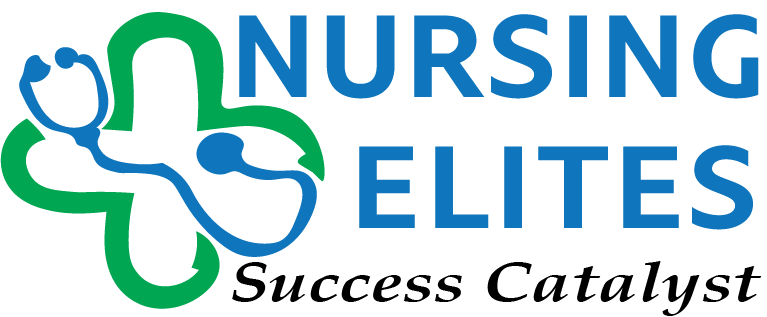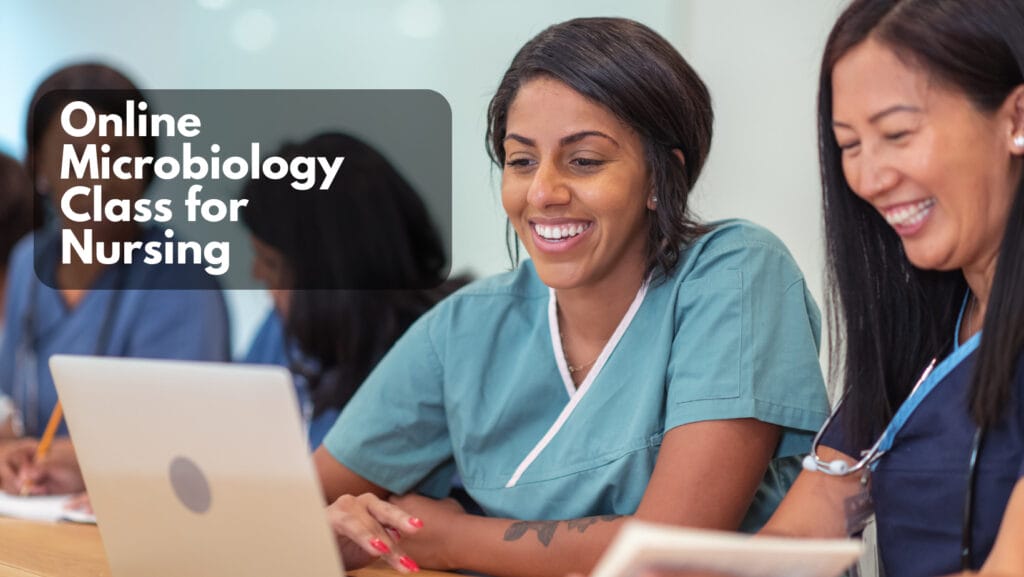Universities across the globe are experiencing increased budget constraints due to reduced funds channeled towards supporting clinical microbiology laboratories. The ripple effect is many colleges are shifting to virtual platforms to offer online microbiology class for nursing as a cost-effective alternative. The concept relies on hybrid pedagogical approaches, including optimal lab-designed visual aids reported as a preferred learning style among 77% of online learners. In this guide, our online class experts explain what to expect in online microbiology classes, including the topics covered and relevant books. We handle classwork and take online exams for students needing urgent help due to the overwhelming microbiology concepts and time pressures.
Topics Covered in the Online Microbiology Class for Nursing
The online microbiology class for nursing does not have a standard format or topics. The concept will depend on the school or university administering it. However, the course can be widely categorized into four main content areas, each comprising topics relating to microbiology and nursing.
Introduction to Microbiology
The introduction to microbiology builds on the topics of histology, biochemistry, molecular biology, and cellular biology to introduce the basic principles of microbiology. It introduces learners to the most critical aspect of microbiology—learning microbes, including prions, parasites, fungi, viruses, and bacteria. By the end of the classes, learners should be able to explain microbes’ classifications, behavior, and clinical details. The topics include, but are not limited to:
- An overview of the introduction to Microbiology
- Introduction to Fungi and Protozoa
- Introduction to Microorganisms, their Metabolic Processes, Extreme Lives, and the Concept of Microorganism
- Introduction to the Bacterial Structure—Their Structure, Metabolism, Heterotrophs, and DNA Exchange
- Introduction to Viruses—The Good and the Bad Viruses, Their Classification and Genetic Variations, and Discovery of New Viruses
- Introduction to Eukaryotic Microbes—Understanding Fungi, Their Classifications, and Histoplasmosis in Pathogenic Yeasts
- Overview and Classification Parasites—Introduction to Protozoa, Nematodes, and Schistosomes.
- Overview of the Prions—Introduction to Scrappies, their Inactivation and Infectivity, Forced Cannibalism, and Chronic Wasting Disease.
Antiviral Medications
The online microbiology class for nursing topics on Antiviral and Medications delves into the concept of antimicrobial medication. It comprises topics on HIV-AIDs and Influenza clinical symptoms, treatment, and vaccines. Classes on Antiviral Medications include the following topics:
- Influenza: Risk Factors to Infection, Symptoms, Treatment and Prevention, Drugs and Drug Administration Safety Measures, Vaccine and Vaccine Types.
- HIV/AIDS: The CD4 Cells, Risks and Stages of Infections, ARVS, HIV Life Cycle, Drug Resistance, NRTIs, and the Protease Inhibitors.
- Antiviral Medications in a Nutshell
Antimicrobial Pharmacology
The online microbiology class for nursing topics on Antimicrobial Pharmacology delves into the compounds and microorganisms able to develop resistance to existing microbial agents. Learners also cover practices and clinical responsibilities necessary for deriving new therapeutic options. The course concepts build on the preliminary studies in physiology, histology, cell biology, and molecular biology.
Classes on Antimicrobial Pharmacology comprise the following:
- Overview of the Antibiotics and How the Cell Wall Synthesis Inhibition Works
- Penicillins, Cephalosporins, and Penems: How They Work
- Monobactams and Glycopeptide: How they Support Cell Wall Synthesis Inhibition
- Linezolid, Macrolides, Tetracyclines, and Aminoglycosides: How they Work
- Overview of the Antimetabolites and How the Sulfonamides
- Overview of the Antimycobacterial Agents
- Overview of the Antifungals
- Flucytosine, Echinocandins, Griseofulvin, and Terbinafine: How they Work
- The Antiviral Drugs: CCR5, Entry Inhibitors, and NRTIs
- Antiviral Drugs: Integrase Stand Transfer Inhibitors
- Antiviral Drugs: Maturation Inhibitors and Protease Inhibitors
- Anti-Herpes Agents and their Treatment Mechanisms
- Influenza, Hepatitis, and Malarial Treatment Agents and Treatment Options
- Amebicides, Nematicides, and Trematocides t Agents and Treatment Options
Anti-Infective Drugs in Nursing
The last topics in the Online Microbiology Class for Nursing should help learners consolidate their understanding of microbial organisms and their infections. The Anti-Infective Drugs in Nursing achieve this objective by taking learners through a brief of the drugs administered in each case scenario and their clinical impacts. These classes cover the following topics:
- Overview of the Antibiotics in Nursing
- Infections: Overview of Infections, Signs and Symptoms of Infections, Clinical Review of Infections
- The Antibiotic Selection for Infection: Prophylactic, Beta Lactams, and their Empiric Therapy.
- Penicillin: Their Overview, Diverse Clinical Effects, and Bacterial Resistance
- Tetracyclines, Macrolides, and Aminoglycosides: Their Overview and Clinical Effects in Nutshells
- Microbial Resistance and Superbugs and How to Manage Them
- Review of Tuberculosis: First Line Drugs and Antimycobacterial Agents
Course Materials for the Online Microbiology Class for Nursing
Below are our expert-recommended books for online microbiology classes for nursing:
| The Microbiology for Nurses by B.S. Nagoba | The book is based on the microbiological nursing concepts from the Indian Nursing Council Guidelines. It covers principles of microbiology, infection control, and application of microbial concepts to Nursing |
| Clinical Microbiology Made Ridiculously Simple by William Tattler and M. T Gladwin | As the title states, this book explains the clinical microbiology concepts using simple mnemonics and visual aids for effective learners’ understanding. It also incorporates case studies across all topics to explain real-world scenarios |
| Essentials of Microbiology for Dental Students by Jeremy Bagg and T.R. Pitt Ford | This book explains the microbiology concepts used in relation to the dental surgery. It suits learners seeking extensive knowledge of oral microbiology, infectious diseases, and microbial infection control in dentistry. |
Online Microbiology Class for Nursing: The Parting Shot
Most colleges offer online microbiology classes as part of the BIOL 201 class. In such a case, the class is a part of a progressive course in nursing or microbiology. Thus, a learner may not be awarded a certificate. However, platforms such as Khan Academy offer certificates at the end of the course. Please consult our experts for exam help and other technical aspects necessary for success.





Pingback: How to Pass Microbiology: Top Study Hacks Revealed
Pingback: AP Bio Unit 4